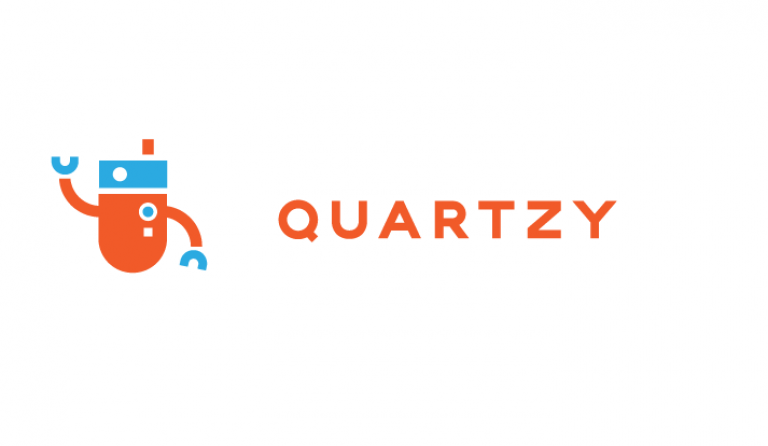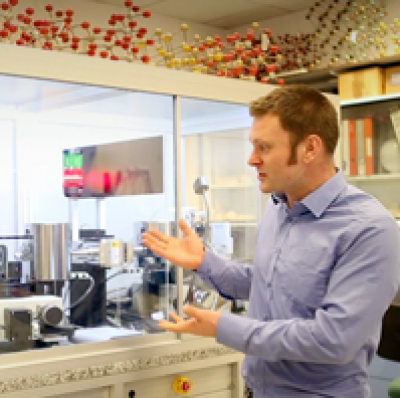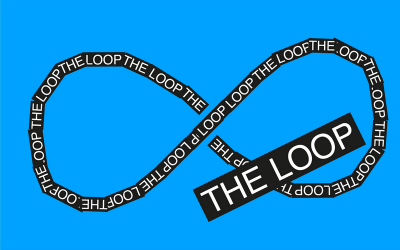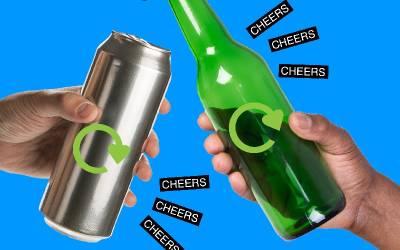Chemistry's Chemical Cataloguing
Read about how UCL Chemistry Department used Quartzy to transform their systems, improve the efficiency of their inventory and save money!

1 August 2019
The UCL Chemistry Department has a very large chemical inventory. With no clear way to catalogue this inventory, they didn't know quite how large. And they also couldn't be specific about locations, quantities or qualities of chemicals.
This caused a number of problems: they needed to be able to provide lists of certain chemicals to various people due to regulation; were probably buying and throwing away the same chemical at the same time in different parts of the department; and, worryingly, there was a safety risk associated with not actually knowing what was in the department.

Dr Charlie Dunnill explaining how Quartzy has allowed effective sharing of the department’s X-ray diffractometer.
Now they’ve started using Quartzy, a free online database where research groups can log all of their chemicals and manage bookings for equipment. Once this system was up and running, it started to gain interest from other labs as people could see the efficiencies at work and after discussion, the decision was made to roll out Quartzy across the entire department. They now have a database of twenty thousand bottles of chemicals, each individually labelled and located.
The safety and sustainability benefits have been huge and the department is also saving a significant amount of money. Dr Charlie Dunnill, who pioneered the scheme, explained; “if you think about it, we pay for the chemical when we purchase them and then we pay again to get rid of what we don’t need. That’s two costs we can eliminate through sharing as well as the time saving for the researchers who are no longer waiting 3 days for chemicals to turn up”. The department estimates the savings to be up to £90,000 a year.
Quartzy is also used to manage all the departmental shared kit so that trained users can book time on equipment, maximising the hours of use that the equipment is available for and minimising down time.
Watch a short film about the scheme below
 Close
Close



